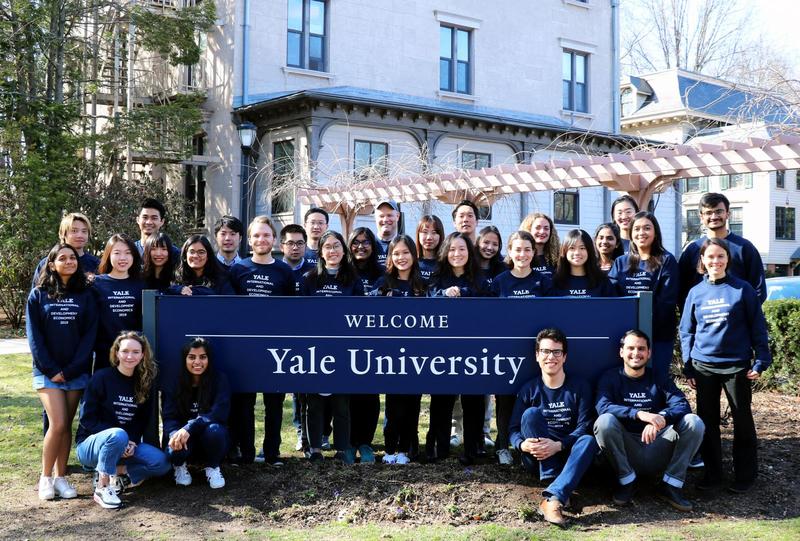Students and Their Careers

IDE '19
"In our understanding, the most important resource that students have is the connections they form with classmates and their life experiences from which they can benefit."
–Prof. Michael Boozer, Co-Director
For IDE the students come first. This is why we start this section with talking about students rather than talking about courses, professors or the University. There is not one typical IDE student. IDE students are incredibly diverse and the program benefits hugely from that fact.
While many of the IDE students did their undergraduate studies in economics or similar fields, we also have a few students in each cohort who come from other educational areas, but who wish to build up the skills to do work in this area.
However, as the IDE Program is purely a master’s in economics, we take people with exceptional analytical and economics backgrounds. Therefore we accept students who have taken microeconomics, econometrics, and macroeconomics. Additionally they have taken courses in multivariate calculus, probability and statistics, and we give preference to people who have had computational linear (matrix) algebra. Upon admission to the program, it may be required that a student take the “Math for Economists” course during the summer prior to beginning the program.
In each cohort some of our students also have some work experience. In short, we encourage applications from all countries and from all post-baccalaureate backgrounds.
Take a look at our alumnae testimonials and careers
2024 Incoming Student Profile
- Number of students – 30
- Number of countries – 15
- Female/male ratio – 65%F / 35%M
- Average GPA – 3.8 / 4
- International student population – 97%
- Average age – 23 years old
- Average GRE quantitative score – 165
Graduate Destinations
In recent years, our students went to work at the following places:
- World Bank
- IFPRI
- IMF
- Inter-American Development Bank
- European Bank Reconstruction and Development
- Soros Economic Development Fund
- UK Oversea Development Initiative
- UNICEF
- Bill and Melinda Gates Foundation
- J-PAL
- EPoD
- IDinsight
- Nomura Holdings
- McKinsey
- Citi Group
- Deloitte
- JPMorgan
- Goldman Sachs
- Frontier Economics
- UBS
- Compass Lexecon / FTI Consulting
- Chappuis Halder & Co Consulting
Within 2-3 years of graduation, about one third of the graduating class is enrolled in a Ph.D program. Recent graduates went to these schools:
- Stanford Economics
- MIT Sloan Finance
- Harvard HKS
- Harvard School of Public Health
- Harvard School of Education
- Berkeley Economics
- Berkeley ARE
- Berkeley Law
- Yale Economics
- Yale FES
- Michigan Economics
- LSE Economics
- UCLA History
- Duke Environmental Economics
- Chicago Booth
- Columbia Business School
- Columbia Economics
- Brown Economics
- BU Economics
- University of Pennsylvania Wharton Applied Economics
- Munich Economics
- ENSEA ParisTech Economics
- NUS
- ANU